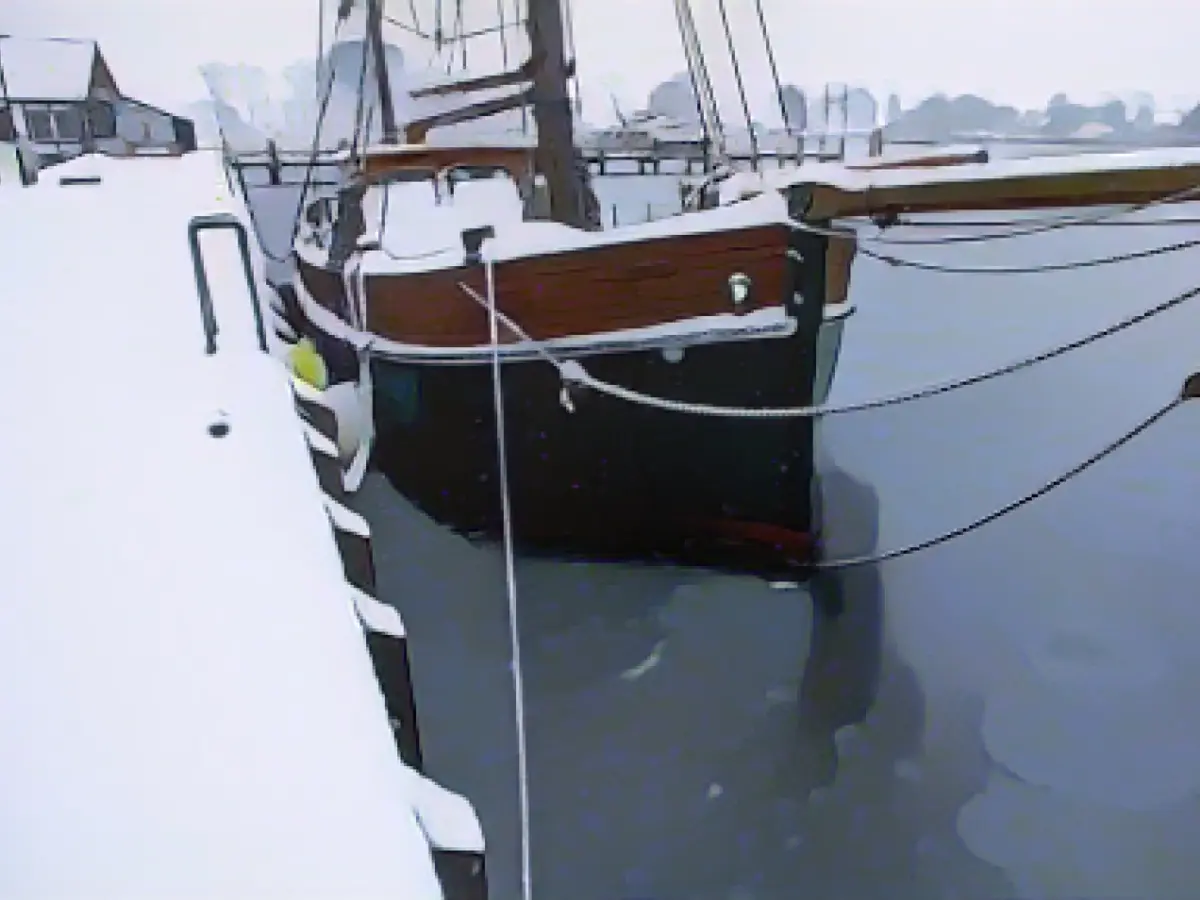Weather - Thin ice in protected coastal areas: Decline expected
Thanks to frosty temperatures, thin ice is forming along the German Baltic Sea coast, especially in sheltered areas. According to Wednesday's ice report from the Federal Maritime and Hydrographic Agency (BSH), this affects the ports of Wismar, Greifswald Wieck and Ueckermünde as well as parts of the Peene Current. New ice and thin ice can also be found in other small, protected areas up to the Schlei. New ice in open water can be found in the Bodden near Zingst, for example.
The Baltic Sea Waterways and Shipping Authority (WSA) had already warned of possible ice formation last week. Icy waters should only be navigated with suitable vessels.
According to the BSH forecast, a small amount of additional ice will form in the coming days, but mostly only the existing ice will remain. On the outer coast, the water temperatures are still mostly between two and seven degrees, so that ice formation is not yet expected there. Temperatures will rise at the weekend and the ice will slowly disappear.
Ice report Baltic Sea
Read also:
- Will he be convicted as Jutta's murderer after 37 years?
- He also wanted to kill his cousin
- With live stream! Gawkers film dying man
- Is Saarland threatened with economic collapse?
- Despite the thin ice in Mecklenburg-Vorpommern's coastal areas, such as Ueckermünde and Greifswald Wieck, the Baltic Sea in Schleswig-Holstein largely remains ice-free due to its open waters.
- The decline in shipbuilding industries along the Baltic coast, including cities like Wismar and Rostock, has led to a decrease in demand for icebreakers, making navigation during winter more challenging.
- The weather report indicates that the Baltic Sea's temperatures will rise during the weekend, leading to a decline in ice formation and eventually its complete disappearance along the coast.
- Warning signs have been posted along the protected coastal areas, such as Peene Current and the Schlei, due to the presence of thin ice, posing a risk to maritime traffic and sailors.
- The Megaload routes across Germany, including those along the Baltic coast, will require caution and careful navigation, as the thin ice and potential existence of large ice floes may pose a risk to transporting oversized cargo.
- The anticipated decline in ice formation will bring relief to the maritime communities along the Baltic coast, as it marks the beginning of safer navigation and trade along the Baltic Sea.
Source: www.stern.de








